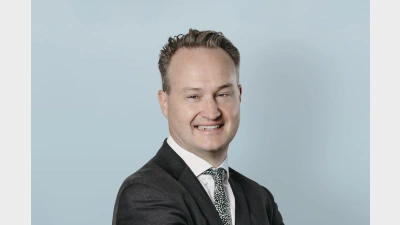The YFYS dilemma between active and passive



A UK fund management boutique believes Australian super funds feel nervous about being left exposed if the investment cycle changes but under pressure to not fail the performance test.
Roman Cassini, head of ESG at Hosking Partners, which recently completed a trip to Australia to meet its super fund investors, reflected on how the Your Future, Your Super (YFYS) performance test had changed the investment landscape for super funds.
The firm’s long-only Hosking Global Equity Trust Fund is an actively managed fund for institutional investors.
Cassini said funds are attracted to their product as it offers alternative exposure compared to passive or index funds.
“With the introduction of YFYS, many super funds are trying to tread the line between maintaining exposure to active management that offers something different but, whether by design or by accident, the YFYS test encourages super funds to lean towards index-style, passive strategies,” he said.
“Funds are nervous about this as index benchmarks are looking skewed with overexposure to US tech companies and the S&P 500 so if something changes, then they are nervous they will be left overexposed.
“But at the same time, they are being encouraged by the way the policy is formulated, from a career risk perspective, to focus on passive strategies.
“So they are all jostling to retain active exposure to unusual ideas in case something changes where that will give them an advantage over other funds.”
The fund has a contrarian approach focused across four themes and holds 400 stocks, far higher than its peers.
“We are naturally contrarian and are focusing on unfashionable parts of the market whether geographically or sectorally. We are extremely highly diversified and feel there is still a place for diversified strategies in the market. Some 75 per cent of our assets under management is invested in four ideas; financials, energy and materials, Japan, and shipping,” said Cassini.
“Explaining our diversification is a challenge and something that not everyone ‘gets’ as in common wisdom, anything over 60 stocks counts as fully diversified. We are not doing it for the sake of diversification, we are doing it because it’s an extension of our investment style.
“For example, we have about 50 companies focused on Japan spread across small, mid and large-cap equities. We don’t know which will be successful so we adopt a basket approach that attempts to be roughly right rather than precisely wrong which means we end up with a large portfolio.”
Recommended for you
Economic growth was weaker than expected, once again highlighting an economy largely sustained by population growth and government spending.
In this latest edition, Anna Shelley, CIO at AMP, shares the fund’s approach to current market conditions and where it continues to uncover key opportunities.
The mega fund has announced a $2.2 billion investment in a leading data centre platform, bringing its global real assets portfolio to nearly $60 billion.
In this latest edition, Australian Retirement Trust’s head of global real assets Michael Weaver explains the fund’s approach to finding new opportunities as it surpasses $300 billion in funds under management.













